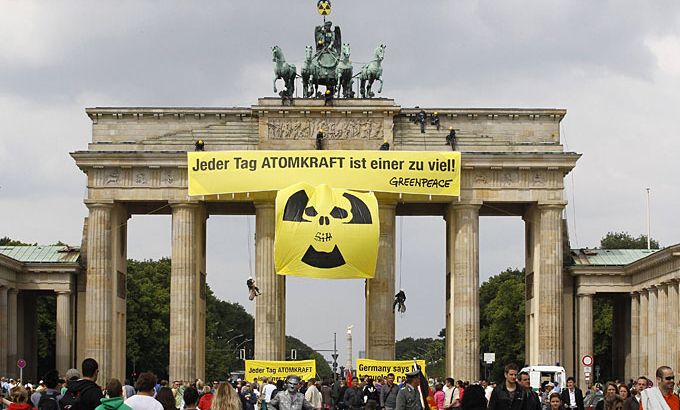
Germany to go nuclear-free
What are the global implications of Germany’s decision to phase out its nuclear plants by 2022?
Germany’s ruling coalition says it has agreed to gradually shut down all of its nuclear power plants by 2022.
Norbert Rottgen, the German environment minister, made the announcement on Monday, the BBC reported online.
Keep reading
list of 4 itemsAfter the Hurricane
World’s coral reefs face global bleaching crisis
Why is Germany maintaining economic ties with China?
The plan is to immediately get seven of its oldest reactors – which are already subject to a moratorium – offline.
Six other reactors will be closed down by 2021 at the latest, with the three newest to follow suit a year later.
Angela Merkel, the German chancellor, had set up an ethics panel to look into nuclear power following the disaster at the Fukushima plant in Japan.
Is this a responsible decision or a nod to public opinion? And what are the global implications of the Germans going nuclear-free?
Over the weekend, dozens of environmental activists climbed on top of Germany’s landmark Brandenburg Gate demanding a speedy end to the use of atomic energy.
We look at the future of nuclear power, the options available to substitute nuclear energy, the problems related to fissile fuel, global warming, and other environmental issues.
Inside Story presenter Hazem Sika discusses with Chris Goodall, the author of Ten Technologies to Fix Energy and Climate; Geohard Fasol, the CEO of Euro-technology Japan in Tokyo; and Miranda Schreurs, the director of the Environmental Policy Research Centre and a member of the German government’s Ethics Commission dealing with issues of Safety and the Supply of Energy.
This episode of Inside Story aired from Monday, May 30, 2011.